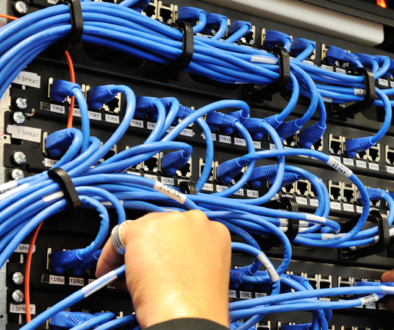Magnetic Sensor Market: Harnessing the Power of Magnetic Fields
Magnetic sensors, a vital component in various industries, have witnessed significant growth in recent years. These sensors are designed to detect and measure magnetic fields, making them indispensable in a wide range of applications. From automotive to consumer electronics, industrial automation to healthcare, magnetic sensors play a crucial role in enhancing the efficiency and functionality of devices and systems. This article explores the magnetic sensor market size, its key drivers, challenges, applications, and future prospects.
Understanding Magnetic Sensors
Magnetic Sensor Types
Magnetic sensors come in various types, each designed for specific applications. The most common types include:
- Hall Effect Sensors: Hall effect sensors are widely used in automotive applications to measure speed and position. They work on the principle that when a magnetic field is applied perpendicular to the current flow in a conductor, it generates a voltage proportional to the magnetic field strength.
- Magnetoresistive Sensors: These sensors change their electrical resistance in response to an applied magnetic field. They are used in hard disk drives, magnetic field mapping, and compass applications.
- Reed Switches: Reed switches are simple, magnetically operated electrical switches that are often used in security systems, door and window sensors, and automotive applications.
- Giant Magnetoresistive (GMR) Sensors: GMR sensors have high sensitivity and are used in applications like magnetic field sensing in medical devices and data storage.
Magnetic Sensor Working Principle
The working principle of magnetic sensors involves the interaction between the sensor’s internal components and an external magnetic field. When a magnetic field is applied, it causes a change in the sensor’s output signal, which can be detected and measured. This change can be in the form of voltage, resistance, or other electrical properties, depending on the sensor type.
Market Trends and Drivers
Automotive Industry Dominates
The automotive industry is a major driver of the magnetic sensor market. Magnetic sensors are used in various automotive applications, including speed sensing, position sensing, and gear detection. The increasing adoption of electric vehicles (EVs) and advanced driver-assistance systems (ADAS) has fueled the demand for magnetic sensors.
Consumer Electronics
Consumer electronics, such as smartphones and tablets, rely heavily on magnetic sensors. These sensors enable features like compasses, map orientation, and gaming applications. As consumer electronics continue to evolve and become more sophisticated, the demand for magnetic sensors is expected to rise.
Industrial Automation
In industrial automation, magnetic sensors are essential for monitoring and controlling machinery and equipment. They are used for precise positioning, proximity sensing, and object detection. The growing trend of Industry 4.0 and smart manufacturing has driven the adoption of magnetic sensors in industrial settings.
Healthcare and Medical Devices
Magnetic sensors are also making inroads in the healthcare sector. They are used in medical imaging equipment such as MRI (Magnetic Resonance Imaging) machines, as well as in wearable health devices for monitoring and tracking purposes.
Challenges in the Market
Despite its growth, the magnetic sensor market faces certain challenges:
- Price Sensitivity: Magnetic sensors are often subject to price pressures, especially in high-volume consumer applications. Manufacturers must balance cost-effectiveness with sensor performance.
- Competition: The market is highly competitive, with numerous players offering a wide range of sensor options. This intensifies the need for innovation and differentiation.
- Miniaturization: As devices and systems become smaller and more compact, there is a demand for smaller magnetic sensors with high sensitivity, which can be a technological challenge.
- Environmental Factors: Magnetic sensors may be sensitive to environmental conditions such as temperature and humidity. Ensuring their reliability in various conditions can be a challenge.
Applications Across Industries
Magnetic Sensors in Automotive
In the automotive industry, magnetic sensors are used for various purposes:
- Wheel Speed Sensing: Magnetic sensors detect the rotation of vehicle wheels, enabling anti-lock braking systems (ABS) and traction control.
- Camshaft and Crankshaft Position Sensing: These sensors determine the position of engine components, aiding in ignition and fuel injection timing.
- Gear Detection: Magnetic sensors help in identifying the gear position in manual and automatic transmissions.
Magnetic Sensors in Consumer Electronics
Consumer electronics rely on magnetic sensors for several functionalities:
- Compass Applications: Smartphones and tablets use magnetic sensors to provide accurate compass readings for navigation and map applications.
- Gaming: Magnetic sensors are employed in gaming controllers for motion sensing and orientation detection.
- Flip Covers: Many devices use magnetic sensors to detect the opening and closing of flip covers or cases, allowing for automatic screen activation.
Magnetic Sensors in Industrial Automation
In industrial automation, magnetic sensors are essential for:
- Position Sensing: They are used to determine the precise position of machinery components, ensuring accurate automation processes.
- Proximity Sensing: Magnetic sensors detect the presence or absence of objects, helping in automation and safety applications.
- Object Detection: Magnetic sensors play a role in detecting metallic objects on conveyor belts or in manufacturing processes.
Magnetic Sensors in Healthcare and Medical Devices
Healthcare applications of magnetic sensors include:
- MRI Machines: Magnetic sensors are an integral part of MRI machines, providing the required magnetic field strength and stability for imaging.
- Wearable Health Devices: Magnetic sensors in wearable devices monitor heart rate, oxygen levels, and other vital signs.
Regional Analysis
The magnetic sensor market is geographically diverse, with key regions including:
North America: North America has a significant market share, driven by the automotive and consumer electronics industries. The presence of major sensor manufacturers and technological innovation contributes to its dominance.
Europe: Europe is another prominent market for magnetic sensors, with applications in automotive, industrial automation, and healthcare. Stringent safety and environmental regulations drive sensor adoption.
Asia-Pacific: The Asia-Pacific region, particularly China and Japan, is a growing market for magnetic sensors. The rapid expansion of automotive production and consumer electronics manufacturing fuels demand.
Rest of the World: Other regions are also experiencing growth in magnetic sensor adoption, albeit at a relatively slower pace.
Future Outlook
The future of the magnetic sensor market appears promising, with several trends shaping its growth:
- IoT Integration: The Internet of Things (IoT) is driving the integration of magnetic sensors into various connected devices and systems, further expanding their applications.
- Miniaturization and Improved Sensitivity: Advances in sensor technology will lead to smaller, more sensitive magnetic sensors suitable for compact devices and high-precision applications.
- Emerging Applications: New applications in emerging fields like autonomous vehicles and robotics are expected to drive demand for magnetic sensors.
- Green Technologies: As industries focus on sustainability and energy efficiency, magnetic sensors will play a role in optimizing processes and reducing environmental impact.
- Customization: Manufacturers are likely to offer more customizable sensor solutions to meet specific application requirements.
Magnetic sensors have become indispensable in various industries, enabling advancements in automotive technology, consumer electronics, industrial automation, and healthcare. While challenges like price sensitivity and competition exist, the market’s future looks promising, driven by technological innovations and the increasing demand for sensor integration in IoT and emerging applications. As the world continues to embrace smart and connected technologies, magnetic sensors will remain a crucial component in enhancing the efficiency and functionality of devices and systems across industries.



